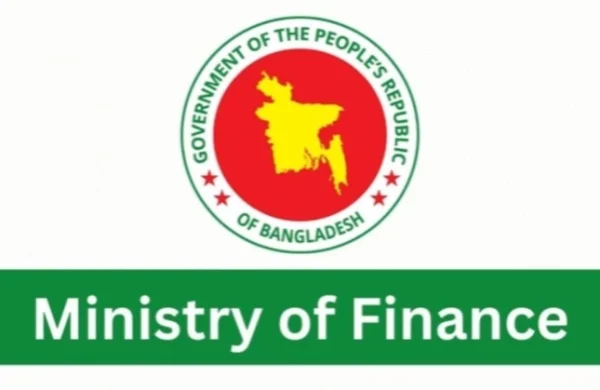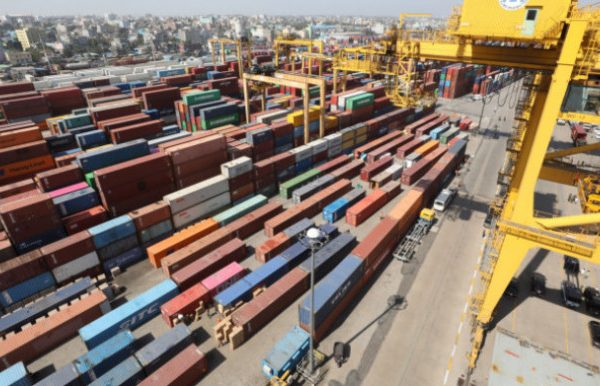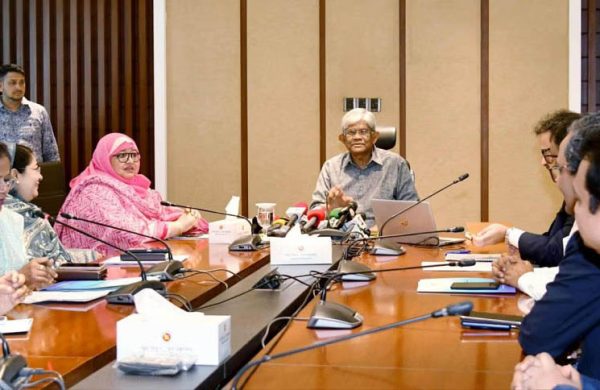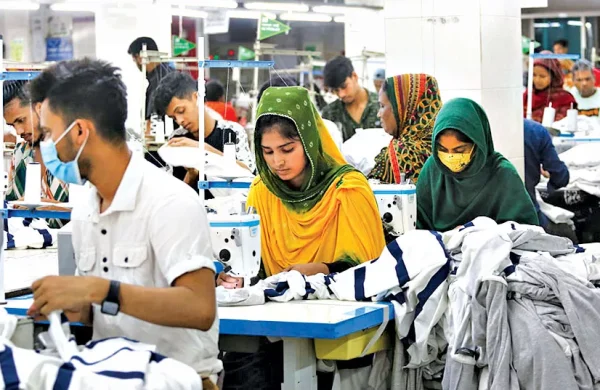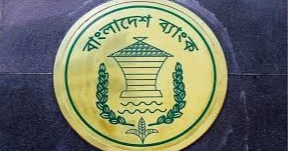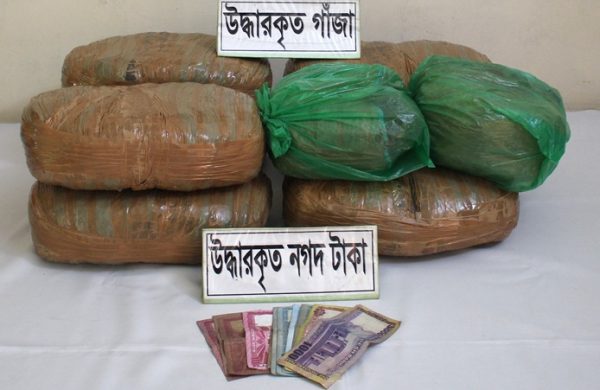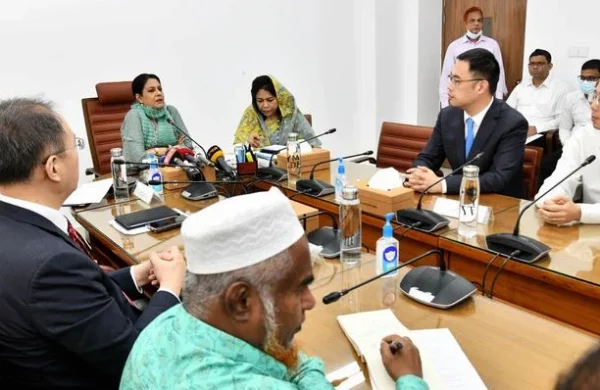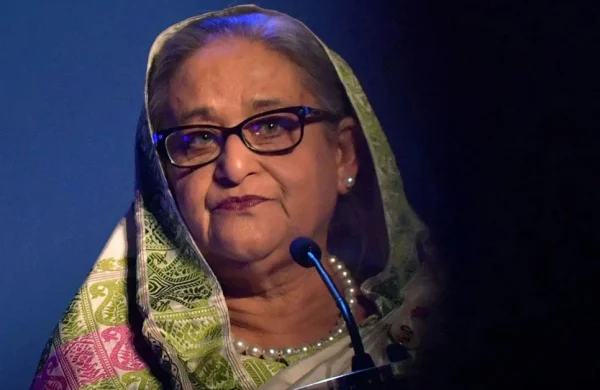Budget to face deficit, GDP to downturn
- Update Time : Tuesday, November 8, 2022

Rehennuma Tarannum:
Global inflation has started to hit the budget. The finance minister hinted last June that the cost of 8.2 billion dollars may increase to meet the import cost of 9 products including oil, wheat, fertilizer and coal.
Abdur Rauf Talukder, the former finance secretary and current governor said that, this cost will increase further in line with the price increase.
Despite the government’s cost-cutting measures, the average import cost in the month from May to September this year was $7 billion. Export costs have increased. Remittances are continuously decreasing, which has a direct impact on reserves and GDP. In the meantime, the Asian Development Bank (ADB), World Bank and International Monetary Fund (IMF) are saying in their forecasts that the GDP growth will not be as per the target for the current fiscal year. Although, the fixed target is 7.5 percent, the organizations said that, it can go from 6.1 percent to a maximum of 6.6 percent by the end of the year. There is volatility in the price of the dollar, gas and electricity crisis is disrupting the normal pace of the economy. Even if the revenue target is not met, the government expenditure limit does not stop. As the urge to borrow from domestic sources is increasing, bank deposits are falling. Domestic debt interest and principal repayment pressures are also increasing. All in all, the government is trying hard to get loans from foreign organizations to implement the budget.
In this case too, the speed of new and old loan discount is low. Again, it is not certain how much will be available during the rest of the current financial year. Budget makers seem that it is assumed that if this trend of global inflation continues, the inflationary expenditure will increase one and half times to meet the import expenditure. Due to this, the officials are not able to match the income and expenditure accounts set in the budget of Tk 7 lakh crore. They said that, in the coming days either import should be reduced or additional spending capacity should be ensured.
The Minister of State for Planning Shamsul Alam said that, all the countries of the world are under pressure with the budget. We are no exception. But not bad considering the situation. Growth is better than the previous year despite lower revenue. Efforts are being made to get foreign loans. So far, pledges of $5.5 billion have been received. I will get the loan as expected during the rest of the financial year.
In the current fiscal year 2022-23, in the budget of Tk 6, 78,064 crore, expenditure on other sectors including state administration has been estimated at Tk 4,31,998 crore. Annual Development Program (ADP) is planned to spend Tk 2,46,066 crores.
The executive director of the private research institute Policy Research Institute (PRI) Ahsan H. Mansoor told that the biggest problem in implementing the budget is financing. Both domestic and foreign loans are now uncertain.
He said that, although there is an increase in revenue, it is not being collected according to the demand. Domestic credit is also not in favorable condition. In the meantime, the loan requested from the donor agencies, even if received, the shortfall will not be met. Apart from this, these loans have certain procedures, which are time-consuming. The desired loan will be seen by the end of the year. There is no progress even with the concession of the accumulated debt promised by the donors. In this situation Dr. Ahsan H. Mansoor advised to revise the budget and reduce it.
It is known that, there are 1,496 projects under implementation in the list of ADP this year. Due to the policy of contraction, the government divided them into three categories. While most of the projects have been suspended or slowed down, the financing of priority projects is struggling.
Executive director of Research and Policy Integration for Development (RAPID) and former chairman of the Department of Development Studies of Dhaka University, economist Professor Dr. Abu Yusuf told that, “The government has knowingly cut costs. It reduces investment, production, services, savings, employment and consumption. A cyclic impact of it may be found in the economy.”
He also said, “We can never implement the budget cent percent. It is not expected under the changed circumstances. As a result, the budget equation will not be balanced-that’s normal.
Monthly deficit of Tk 8,500 crore:
The target is to collect Tk 4,33,000 crore from the revenue sector. The government expects to get Tk 3,70,000 crore from NBR alone. The review showed that to achieve the target, an average of more than Tk 30,833 crore should be collected from this sector per month. But last July-September average revenue was Tk 22,355.63 crore. The deficit is about Tk 8,500 crore.
The government is leaning on bank loans:
The deficit in the budget is Tk 2,45,064 crores. The government aims to borrow Tk 1, 46,335 crore from domestic sources to meet the deficit. In the first three and a half months of the current financial year, the government has taken a loan of Tk 20,000 crore from the banking sector, which is Tk 15,000 crore more than the same period of last year. Now the accumulated debt of the government in the banking sector is Tk 2,86,925 crores.
Earning capacity decreasing:
The amount of bank deposits is decreasing. At the end of June, bank deposits were Tk 14,71,000 crore. In July, it stood at Tk 14,65268 crore. This reduces the expected loan opportunities from the banking sector. In this context, the central bank is going to increase the loan interest rate.
Increasing pressure on interest payment:
Savings certificates are another sector of government borrowing. Due to various conditions including the obligation to file income tax returns, people’s enthusiasm for savings certificates is decreasing. On the contrary, the cost of living including the price of goods increases. As a result, people are constantly breaking their savings.
According to the latest data of the Savings Certificate Directorate, the total debt of the government in the savings certificate sector has stood at Tk 3,64,411 crore till August. In the financial year 2021-22, Tk 40,000 crore were spent on interest payments. There is a high risk of not achieving the target of Tk 35,000 crore of loans from savings cards this year.
Uncertainty in foreign loans:
Finance Minister AHM Mustafa Kamal has set a target of getting Tk 1,12,458 crore loan assistance from foreign sources to meet the budget deficit.
According to the loan demand report for the first four months of the fiscal year, during this period the government has presented a total loan demand of 6.7 billion dollars to various organizations.
The report revealed that, so far $450 million has been offered to IMF, $100 million to ADB, $700 million to World Bank and $500 million to JICA. The remaining $5.14 billion proposal is yet to be discussed.
Dollar deficit:
Budget aid and other grants and loans from various organizations and countries come in US dollars. In developing countries including Bangladesh, the dollar has become important to balance foreign transactions and reduce the risk of reserves, which can meet foreign loans, grants, export earnings and remittances.



